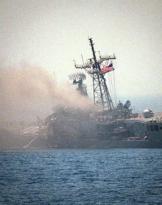NATO's enlargement to Eastern Europe continues, last month North Macedonia officially became the thirtieth state to join the Atlantic Alliance.
Obviously the military contribution of the Armed Forces of Skopje to the Alliance can only be purely symbolic, however North Macedonia has a geopolitical relevance of no small importance.
The Russian Federation and the European Union in particular have been competing for years to extend their influence over the Western Balkans. In fact, since the wars in the former Yugoslavia, in the early 90s of the last century, the region has been a key point when it comes to NATO enlargement and relations with the United States.
The Western Balkans region is well beyond Russia's supposed sphere of influence in Eastern Europe. In geopolitical terms, the region has always gravitated more towards the West than towards Russia (apart from the traditional alliance with Serbia). Therefore, Russia's only option was to "threaten" the Alliance by using the region's vulnerabilities to them in the Western bloc. In particular, Russia could feed nationalistic political groups to destabilize the region and achieve its goals.

The fact remains that if NATO can intrude into Russia's "courtyard" (for example Ukraine, Georgia, etc.), the Kremlin, after having suffered the entry of North Macedonia into NATO, will try to counter the likely enlargement of the European Union (enlargement always monitored by Washington) in the Balkans, and could do so by leveraging old controversies fueled by Balkan nationalism and the distrust of citizens in European political institutions.
German Chancellor Bismarck said that a great war would be triggered "by some cursed folly in the Balkans": so it happened over a century ago.
Now the region is an economic and diplomatic battleground over which the European Union, NATO, Russia and Turkey seek to exercise their influence.
As I said, North Macedonia assumes an important geopolitical role since the Balkan route, after the Mediterranean one, is the gateway to Europe for migratory flows. The Turks, at the same time as an expansionist policy in the Mediterranean Sea, are trying to broaden their influence in the Balkans, in order to better be able to keep the European Union in check with the threat of the invasion of refugees.
A sort of re-proposal of what happened with the Ottoman Empire, that is extending the hegemony of Ankara on the Balkan Peninsula, with huge returns from an economic and political point of view.
Photo: US Army National Guard












